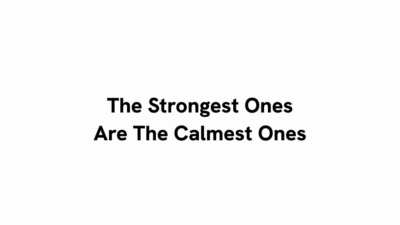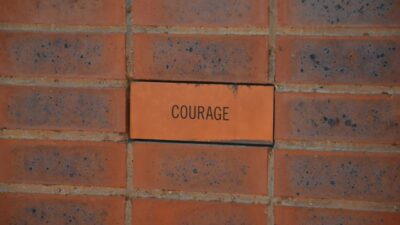Building a startup is one of the most exciting and rewarding journeys you can undertake. But it’s also one of the most demanding. The long hours, relentless problem-solving, and constant pressure to deliver can take a toll on even the most resilient founders.
Burnout isn’t just about feeling tired—it’s about feeling depleted, losing the passion that once fueled your vision, and struggling to find motivation. Left unchecked, burnout can derail not only your mental health but your business as well.
The good news? Burnout isn’t the end. With intentional self-management and a focus on mental health, you can transform burnout into a breakthrough. In this guide, we’ll explore actionable strategies to help founders protect their energy, prioritize their well-being, and show up as their best selves for their teams and businesses.
What is Burnout, and Why Does It Happen?
Burnout is a state of emotional, mental, and physical exhaustion caused by prolonged stress. For founders, the risks of burnout are particularly high due to:
- Unrealistic Expectations: Feeling the need to constantly overdeliver.
- Isolation: Leading a company can feel lonely, especially when decisions rest solely on your shoulders.
- Overwork: The “always-on” culture of startups leaves little room for rest.
- Lack of Boundaries: Difficulty separating work from personal life.
While burnout can feel overwhelming, it’s important to remember that it’s not a personal failure—it’s a signal that something needs to change.
From Burnout to Breakthrough: A Founder’s Guide
Here are five actionable strategies to help you move from burnout to breakthrough:
1. Set Boundaries on Your Time
Founders often feel the need to be available 24/7, but this mindset leads to diminishing returns. Setting clear boundaries protects your energy and creates space for recovery.
Key Insight: Work expands to fill the time you allow it. By creating boundaries, you force yourself to prioritize what matters most.
Example: Use tools like Clockwise to block off focus hours and “off” hours in your calendar. Communicate your availability clearly to your team.
Action Step: Define your work hours and stick to them. Turn off notifications outside of those hours to protect your personal time.
2. Prioritize Recovery
Rest isn’t a luxury—it’s a productivity tool. Without regular recovery, your decision-making, creativity, and overall performance suffer.
Key Insight: Your brain needs downtime to process information, generate new ideas, and recharge.
Example: Founders who prioritize exercise, hobbies, or mindfulness practices often report improved focus and reduced stress. Tools like Headspace or Calm can help you incorporate mindfulness into your routine.
Action Step: Schedule at least 30 minutes a day for a recovery activity that recharges you, whether it’s a workout, a walk, or meditation.
3. Delegate and Automate
You can’t do it all—and you shouldn’t try. Delegating tasks to your team or automating repetitive workflows frees up your mental bandwidth for high-impact decisions.
Key Insight: Delegation isn’t about losing control; it’s about empowering your team and focusing on what only you can do.
Example: Use tools like Zapier to automate workflows or hire virtual assistants through platforms like Belay or Fancy Hands.
Action Step: Identify 3 tasks you can delegate or automate this week and take action to offload them.
4. Connect with a Support Network
Burnout often feels worse when you face it alone. Building a strong support network of peers, mentors, or therapists provides perspective, encouragement, and guidance.
Key Insight: Sharing challenges reduces their weight and often leads to actionable insights you wouldn’t find on your own.
Example: Join founder-specific mental health groups like FoundersTaboo or professional coaching platforms like Coa.
Action Step: Reach out to a mentor, peer, or therapist this week to discuss challenges and gain perspective.
5. Focus on What Matters Most
Busywork often masquerades as productivity, but it rarely drives meaningful progress. Prioritize tasks that directly contribute to your vision and goals.
Key Insight: The Pareto Principle (80/20 Rule) applies to startups—20% of your actions drive 80% of your results.
Example: Use prioritization frameworks like Eisenhower Matrix to identify high-impact tasks. Tools like Sunsama or Notion can help you track and manage priorities effectively.
Action Step: List your top 3 priorities for the week and focus your energy there. Eliminate or delegate the rest.
Tools and Resources for Self-Management
Here are some modern tools to help you protect your energy and mental health:
- Time Management:
- Clockwise: Automatically optimizes your calendar for focus time.
- Sunsama: Helps you plan and execute your daily priorities.
- Wellness and Recovery:
- Calm: Offers guided meditation and mindfulness exercises.
- Peloton App: Combines fitness and mindfulness with convenient workout options.
- Delegation and Automation:
- Zapier: Automates repetitive tasks and workflows.
- Belay: Matches you with skilled virtual assistants for support.
- Support Networks:
- FoundersTaboo: A safe space for founders to discuss mental health.
- Coa: Offers group coaching and therapy for entrepreneurs.
Practical Steps to Start Today
- Audit Your Calendar: Review your schedule for the week and identify tasks you can delegate or eliminate. Block time for recovery activities.
- Set a Recovery Goal: Commit to one restorative activity daily, such as a 15-minute meditation, a walk, or journaling.
- Reach Out for Support: Schedule time to connect with a mentor, peer, or therapist to share your current challenges and gain insights.
Reflection Prompt
Are you managing your energy and mental health as intentionally as you’re managing your startup? What steps can you take this week to protect your well-being?
Closing Thoughts: Your Energy Fuels Your Vision
Your startup’s greatest asset is you. Protecting your energy and mental health isn’t a distraction—it’s a prerequisite for sustained success.
By setting boundaries, prioritizing recovery, delegating tasks, and leaning on a support network, you can move from burnout to breakthrough. Remember, you can’t pour from an empty cup. Take care of yourself, and you’ll be better equipped to take care of your business.



